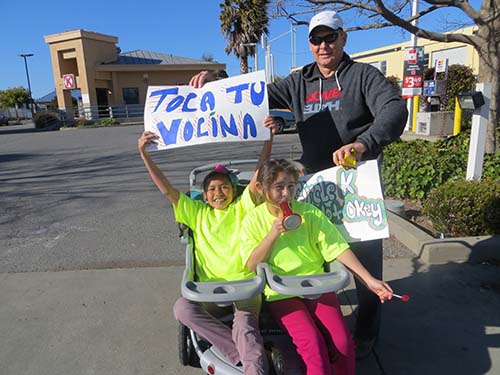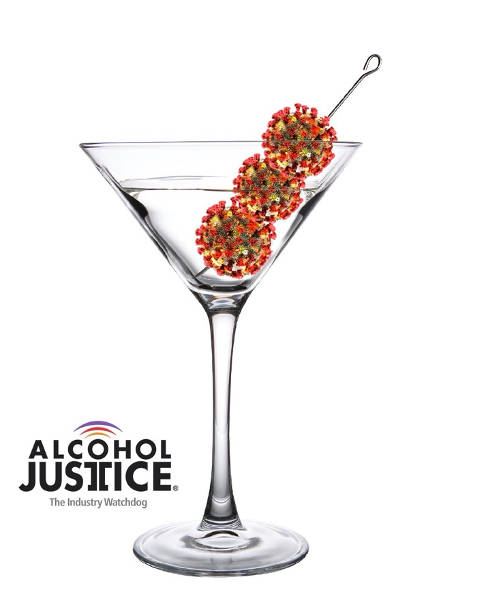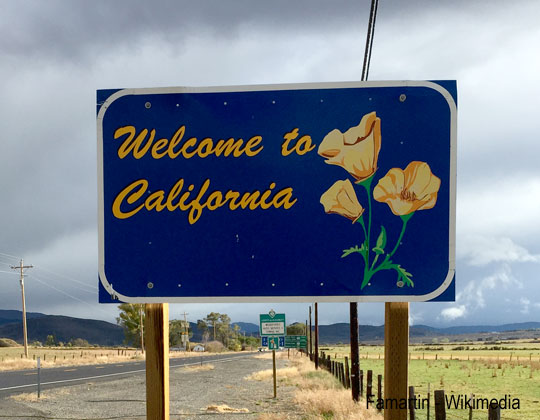Blog
Subtracting Ads: YFJ, SRADC Push for Lasting Local Liquor Store Reform
 Despite Marin County's reputation for healthy living, underage drinking poses a major problem for the City of San Rafael. According the California Healthy Kids Survey, 47% of high school seniors report drinking alcohol, 22% percent repeatedly binge drinking, and nearly 1 in 5 having either driven while drunk or been in a car with a drunk driver.
Despite Marin County's reputation for healthy living, underage drinking poses a major problem for the City of San Rafael. According the California Healthy Kids Survey, 47% of high school seniors report drinking alcohol, 22% percent repeatedly binge drinking, and nearly 1 in 5 having either driven while drunk or been in a car with a drunk driver.The Youth Action for Safe Stores campaign led by Youth for Justice and the San Rafael Alcohol and Drug Coalition seeks to address the underage drinking problem by changing the alcohol retail environment in San Rafael. Dangerous behaviors include excessive store-front advertisements and beverages with high sugar and alcohol content referred to as “Alcopops.” Ending the harmful behavior of dangerous alcohol retailing will ensure local stores do not promote underage drinking.
As part of the Youth Action for Safe Stores, Youth For Justice has engaged with local San Rafael City Council members to advocate for the importance of alcohol retail accountability. In the coming weeks and months, they will engage the Marin County Board of Supervisors to build support for clear policy changes that reduce the amount of advertisements on storefronts. By advocating for policy change to address these behaviors and organizing community-led education, we move steadily towards a retail environment that is protective for youth in the city, and creates a model for the county, maybe even the state, to follow.
READ MORE about Youth for Justice.
READ MORE about the Youth Action for Safe Stores and the fight for a healthy San Rafael.
The Shadow Epidemic: Alcohol Deaths Spike During COVID-19
 As the world still reels from the impact of the COVID-19 pandemic, researchers at the National Institutes of Alcohol Abuse and Alcoholism found an echoing disaster unfolding: a 25% increase in alcohol-related deaths between 2019 and 2020. In a research letter published in the Journal of the American Medical Assocation (JAMA), the team, headed by Aaron White, PhD, noted that though the U.S. had been experiencing a steady increase in alcohol mortality over the past 20 years, the onset of the pandemic, lockdowns, and rampant industry deregulation saw that rate increase 11-fold. In total, nearly 100,000 lives lost in 2020 wholly or partially involved alcohol.
As the world still reels from the impact of the COVID-19 pandemic, researchers at the National Institutes of Alcohol Abuse and Alcoholism found an echoing disaster unfolding: a 25% increase in alcohol-related deaths between 2019 and 2020. In a research letter published in the Journal of the American Medical Assocation (JAMA), the team, headed by Aaron White, PhD, noted that though the U.S. had been experiencing a steady increase in alcohol mortality over the past 20 years, the onset of the pandemic, lockdowns, and rampant industry deregulation saw that rate increase 11-fold. In total, nearly 100,000 lives lost in 2020 wholly or partially involved alcohol.
"This is a massive blindspot in health policy coming around to bite us," said Carson Benowitz-Fredericks, MSPH, Research Director at Alcohol Justice. "When alcohol deaths are treated as a moral failure and not a product of how alcohol is promoted and sold, then sudden trauma or upheaval can add tens of thousands to the death toll."
Warnings of this upheaval have been noted for the past decade. In 2018, a study in the British Medical Journal observed a stunning spike in alcohol-related liver disease, including a 10.5% rate of increase among 25-34 year-olds. A 2020 report from Dr. White and colleagues analyzed death certificates for alcohol-related causes and found a rate increase of 50.5% between between 1999 and 2017. (Both of White's reports talk about a rate increase, not just simple number of deaths. Because the rates are per capita, they account for population changes—and accumulate year-over-year to staggering degree. If the 25% rate increase from 2019-2020 becomes the new norm, then the numbers of alcohol deaths in 2025 will be 3 times what they were in 2020.) But something, or some things, about the COVID-19 pandemic severely aggravated the dangers of alcohol use.
One possible answer was an overall increase in risky drinking, particularly hazardous drinking. Between the civic disruptions from lockdowns, the trauma and grief from family deaths, and the steady anxiety, U.S. residents may have leaned harder into drinking. Multiple studies evaluating alcohol during the lockdowns observed changes in alcohol use favoring more hazardous drinking patterns. A nationwide survey published in JAMA found that alcohol consumption increased 14% overall, while a survey conducted by RTI observed a 29% increase in overall drinking, 20% increase in heavy drinking, and 21% increase in binge drinking. An Alcohol Justice/Institute for Public Strategies survey of residents of Los Angeles County found that dangerous drinking skyrocketed among individuals already prone to binge drinking.
White and colleagues tease out other interesting patterns, however. There are many reasons to believe alcohol use makes individuals more likely to die from COVID-19 infection, including diminished immune response, poorer adherence to infection-avoidant behavior, and the existing inflammation from alcohol use exacerbating the lethal lung inflammation caused by COVID. In particular, while alcohol deaths in individuals with an alcohol use disorder (AUD) rose dramatically, the number of deaths reported in individuals who had overdosed from opioids with alcohol in their system rose even more (35.1% vs. 40.8%). Alcohol and other sedatives, when mixed with opioids, make overdose much more likely. With the explosion of extremely potent fentanyl in the illegal drug supply, both in terms of injection use and counterfeit medication, mixing alcohol and opioids may have become substantially more dangerous.
All of this assumes that the increase happened in a vacuum, that there was nothing legislators and civic leaders could do as the emotional toll of the pandemic mounted. Yet White and colleagues clearly identifiy "shifting alcohol policies" as a contributor to this rising death rate. Indeed, California, like most states in the country, rapidly sought to deregulate the alcohol market. Between expanding the service footprint for nearly every interested alcohol licensee, encouraging and enabling app-based alcohol delivery, and encouraging alcohol consumption in nearly all public venues, drinking rapidly became normalized in all sorts of contexts in which people would not have otherwise thought to have a drink. As the nation slowly recovers from the disease (or at least, resigns itself to the ongoing infection and death), legislators, spurred on by Big Alcohol and a myopic fixation on alcohol sales to boost a damaged economy, have made these changes permanent.
"It's hard to realize the sheer scope of harm from alcohol on demand, alcohol on the street, alcohol everywhere," said Michael Scippa, Public Affairs Director for Alcohol Justice. "But this study is a wake-up call. An extra drink a day, 7 extra drinks a week, one extra night slamming shots—it's easy for lawmakers to say 'Oh, it's not going to hurt me. It's not gonna hurt anyone I know.'"
"But," he added, "look at these numbers and tell me it definitely won't hurt someone else you meet, someone else you know, someone else you love."
READ MORE about alcohol deregulation in California during COVID-19.
READ MORE about the impacts of alcohol use on the risk of COVID-19 infection.
BREAKING: Scott Wiener Calls For More Bars Near Schools
Late Friday afternoon, California State Senator Scott Wiener (D-San Francisco) announced he had introduced a new bill, SB 980, which would vastly disempower communities and regulators in determining new alcohol licenses. Among other provisions, the law would prohibit the California Department of Alcoholic Beverage Control from using proximity to schools, churches, community centers, and other youth-centric spaces as reasons to deny a permit. In addition, it includes provisions that would reduce the transparency of the permitting process, both by removing notiffication requirements for new licenses, and artificially terminating complaints against licensees.Alcohol justice will provide more details on this bill next week.
Alcohol Allies Rush to Revive Rejected Bills
 California’s 2022 legislative session opened with an all-fronts push of three stalled bids to deregulate alcohol. The prior year had seen an all-fronts effort to boost alcohol industry profits, giving every level of industry more service space, more delivery rights, and less oversight. Even so, as the emergency conditions that justified the original deregulatory efforts were withdrawn, some of the more reckless efforts to permanently increase alcohol sales—and therefore alcohol consumption—in the state were blocked or stalled.
California’s 2022 legislative session opened with an all-fronts push of three stalled bids to deregulate alcohol. The prior year had seen an all-fronts effort to boost alcohol industry profits, giving every level of industry more service space, more delivery rights, and less oversight. Even so, as the emergency conditions that justified the original deregulatory efforts were withdrawn, some of the more reckless efforts to permanently increase alcohol sales—and therefore alcohol consumption—in the state were blocked or stalled.
But as the second half of the 2021-2022 legislative session sees these bills back with vengeance. Here are the red-flag bills in Sacramento this year:
SB 793, aka Let’s Get Drunk With Kids!
This bill makes two substantial changes to bars’ service privileges, both of which create reckless new channels for alcohol harm. The first change encourages city to create “entertainment zones” wherein bar and restaurant patrons can carry drinks directly out of the bar, consume them on the street, and carry them into other venues. Areas with these policies already exist, including the Las Vegas Strip and Bourbon St. in New Orleans. These “entertainment zones” are frequently connected with violence, and functionally dedicate the blocks in which they are authorized to just consumption. By encouraging constant drinking, they hamper bar employees ability to engage in oversight and responsible beverage service, make it impossible to hold venues accountable for violence and overservice, and may actually diminish the economic viability of any business that doesn’t serve alcohol.
Yet it is the second change that is stranger and more reckless. SB 793 also creates a “music venue license,” which allows any bar to stop carding at the door so long as there is a band playing. It is a strange and unnecessary provision; either teenagers are essential to a music venue’s survival, in which case they don’t need a bar, or alcohol service is essential to the bottom line, in which case they do not need to permit minors. Even with perfect monitoring of drinking on the premises, this bill makes it so that no teenager can go out to a show without having to deal with drunk adults. This has the short-term effect of making teenagers vulnerable to the violence, crime, and sexual assault that is associated with overconsumption of alcohol, and the long-term effect of creating a direct and efficient way for the alcohol industry to market to minors.
There is a better political climate in which California lawmakers have the courage and imagination to incentivize venues to operate with closed bars for all-ages shows—or even to let the state underwrite the financial viability of drug-free, alcohol-free showspaces. Unfortunately, that climate remains clouded over by the prospect of making money for an alcohol industry that is financially reliant on getting kids to drink more and drink younger.
SB 620, aka Handles on Your Doorstep
Direct delivery has long been a privilege of the powerful California wine industry, and this has sparked envy among other alcohol producers. With enthusiastic backing of influential Napa state senator Bill Dodd, distillers may be poised to also enjoy that privilege. This bill opens the gates to delivery through common carriers such as FedEx and UPS to deliver hard liquor to the doorstep.
This bill has obvious problems with enforcement, making it much simpler for purchases to be made by minors and delivered with cursory ID checking by harried couriers on long routes. But it also creates the possibility for subscriptions to booze. Although no single distiller can deliver more than 36 liters per year—about 20 handles of booze, the equivalent of 2.5 drinks per day—there is obviously no cap on how much a customer can receive from multiple distillers. Moreover, this privilege does not extend only to California producers; any distiller can now ship to California doorsteps, including the biggest of Big Alcohol. This, ironically, increases the pressure on local producers and opens the likelihood of them being outcompeted by behemoths with unlimited marketing and advertising budgets, and the clout to negotiate sweetheart deals with the carriers.
This is part and parcel of circumventing the three-tier system. This system is supposed to mandate that producers, distributors, and retailers should not be the same company. Yet between sampling rooms, brewpubs, and now home delivery, the distinctions have become completely moot. The central intent of these tiers was to reduce the threat of alcohol monopoly. Now the legislature, whether through short-sightedness or duplicity, instead seeks to enshrine it in the name of consumer choice.
SB 846, aka Alcohol Uber Alles
In 2020, the public safety inspired closures of bars and restaurants led to supposedly temporary measures allowing mixed drinks to be sold to go. Last year the legislature enshrined that privilege, albeit in a limited way. Currently, California law allows restaurants to deliver mixed drinks for takeout to customers picking up food from a restaurant. However, some bars and restaurants want the option to make use of delivery services such as Uber and Lyft to expand their profits without having to be accountable for their customers.
SB 846 creates the mechanism by which this can happen. It creates a permitting system whereby bars and restaurants can deliver mixed drinks in any quantities, with no obligation to also serve food, via any permitted delivery service. Moreover, the bill explicitly absolves them of any of the normal elements of responsible beverage service—so long as the retailer “affirms” that the consumer is over 21, they have no liability for receipt by a minor, a person who is dangerously intoxicated, or a sale that creates any other dangerous situation. The liability instead falls on delivery companies, who, sitting on billion-dollar warchests and already prone to treating their drivers as disposable, can laugh away the thousand-dollar fines for violations and divert all the blame on the person making the delivery.
In short, this bill: a) encourages alcohol consumption in situations where people would not otherwise have even thought of drinking, b) perpetuates a method of sale which has been repeatedly exploited by minors seeking alcohol, c) creates a shell game of accountability for alcohol harm, and d) explodes the possibility of alcohol-related profits for delivery companies that have a consistent, decade-long pattern of contempt for transparency, public safety, and employee wellbeing.
Two of these bills—SB 793 and SB 620—have already passed through the State Senate and are in front of the Assembly. The third has been fast-tracked. It is possible that Big Alcohol’s boosters are attempting to fast-track these bills while “emergency” conditions increase public sympathy for bars and restaurants. Or it could be simpler: every day that passes is an extra buck that the industry can’t deposit. Either way, Alcohol Justice remains ready to oppose these bills every step of the way, and encourages our supporters and allies to remain vigilant and ready for the fight.
READ MORE about reckless deregulation under COVID-19 restrictions.
More Articles ...
Help us hold Big Alcohol accountable for the harm its products cause.
| GET ACTION ALERTS AND eNEWS |
STAY CONNECTED    |
CONTACT US 24 Belvedere St. San Rafael, CA 94901 415-456-5692 |
SUPPORT US Terms of Service & Privacy Policy |


